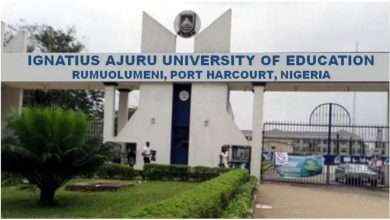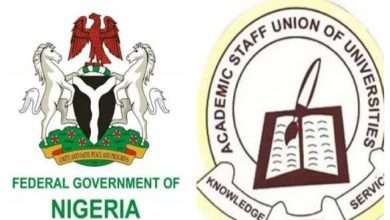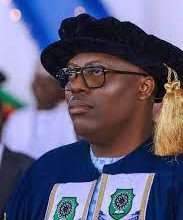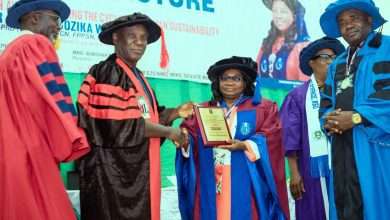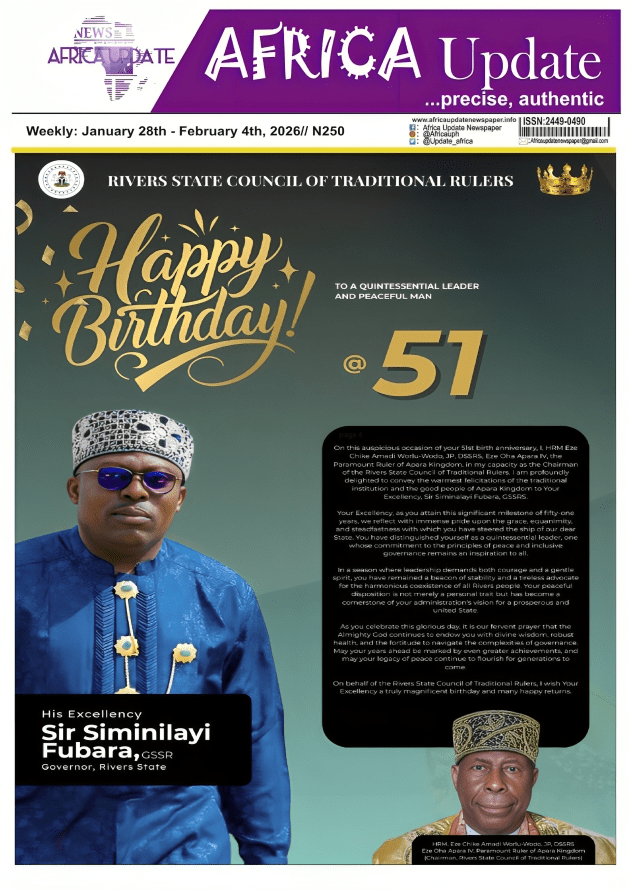
Rivers State has moved to the top of the chart for having children who have high numeracy and literacy levels in primary and junior secondary schools across various local government areas. This feat, was disclosed today, when the state dissemination and 2020 Nigeria Education Data Survey (NEDS) was officially launched, in Port Harcourt the state capital.
Delivering his address, the Honourable Federal Commissioner, National Population Commission, Dr. Ipalibo M. Harry, said the 2020 NEDS was conducted to provide data for national planning, particularly in the education sector. He noted that ” currently, the Federal Government of Nigeria (FGN), with support from the World Bank is implementing the Better Education Service Delivery For All (BESDA) programme in 17 focus states across the 6 geopolitical zones in the country. “BESDA is an intervention programme that seeks to among others, reduce the number of out-of-school children, improve literacy rates, and strengthen accountability in the education sector especially at the primary and junior secondary school levels in Nigeria.
“The BESDA project, which is anchored on a program for results (PIR) operation, means that evidence of improvement in school intake and literacy level must be seen in the BESDA focus states before such states can be given support in terms of funding to increase in scale. “The 2020 NEDS is a nationally representative sample survey that took place in all states of the federation and the federal capital territory with special focus on the 17 BESDA intervention states of Adamawa, Bauchi, Borno, Ebonyi, Gombe, Jigawa, Kaduna, Kano, Katsina, Kebbi, Niger, Oyo, Rivers, Sokoto, Taraba, Yobe and Zamfara respectively.
“The 2020 NEDS report will no doubt, increase education data availability, and set a trend for planning, monitoring and measuring education indicators in Nigeria in both the BESDA focus and non focus states.
” The specific objectives of the 2020 Education Data Survey are: to produce education data that will produce indicators to verify reduced number of out-of-school children and improved literacy rates in BESDA’s 17 focus states. To provide data on the schooling status of Nigerian school-age children, disaggregated by sex and age. To provide household education expenditure estimates disaggregated by rural and urban households. To provide schooling attitudes and behaviors by household welfare status. To provide data that allows for trend analysis and to improve education data collection methods and processes for enhanced data quality.”
Stating further that a two stage selection process was used in the design of the survey and the Enumeration Areas (EA) were first selected and then eligible households with one or more children between the agwa of 4 to 16. He said, ” the 2020 NEDS was carried out in 9,711 Enumeration Areas in the focus states while 458 Enumeration Areas were covered in the non focus states, bringing the total number of Enumeration Areas to 10,169 across the county. “A total number of 39,028 households were selected and interviewed in the focus states, while the non focus states had 1,832 selected households interviewed, bringing the combined total to 40, 676 households in both rural and urban areas across the county.
” The sampling methodology has been designed to provide meaningful information on key characteristics at state levels for the focus states.. It will also allow comparison between zones and states and over time. The survey looked at a number of variables such as background characteristics,literacy, comprehension, and numeracy, school attendance, school expenditure, availability of textbooks and other school issues to arrive at the final result which is contained in the report.” He however revealed that the dissemination of the 2020 NEDS was conducted by the commission, in collaboration with the Federal Ministry of Education, with the support of the World Bank to generate data that will be a veritable tool for revamping the education sector through informed policy decisions.
Expressing gratitude to the Honourable Minister of Education, National Bureau of statistics, Universal Basic Education Commission, the World Bank, the Rivers State Governor, Chief Bar. Nyesom Wike, Rivers State Ministry of Health, Universal Basic Education Rivers State and the Ministry of Education, for their support, Dr. Harry, assured that the commission will continue to strengthen and explore collaboration aimed at providing the state and nation with accurate and reliable data for sustainable development planning. Several speakers expressed the need for state governments to implement the recommendations made in the report to ensure that children acquire compulsory and quality education. While participants were drawn from across various interest groups, goodwill messages were made by the Director Planning, Research and Statistics, Rivers State Universal Basic Education Board, Evang. Emmanuel Ogbugo, Monday Yiimunah, from the Rivers State Ministry of Culture and Tourism, Mrs Adeline G. Saloka, Director at the Ministry of Budget and Economic Planning.
The State Director, National Population Commission Rivers State, J. M. Daka, Head, NEMIS/ Statistics Federal Ministry of Education, Mathias Nganjiozor, Director Planning, Research and Stat, Universal Basic Education Commission, Abuja, Akpanosson Udoh, BESDA Rivers State based consultant, Pius O. Osaghae, Assistant Director Planning and Research NPC, Mezue Oliver, Philip Osung, Dr. Sunday Edum, amongst others were at the event.



